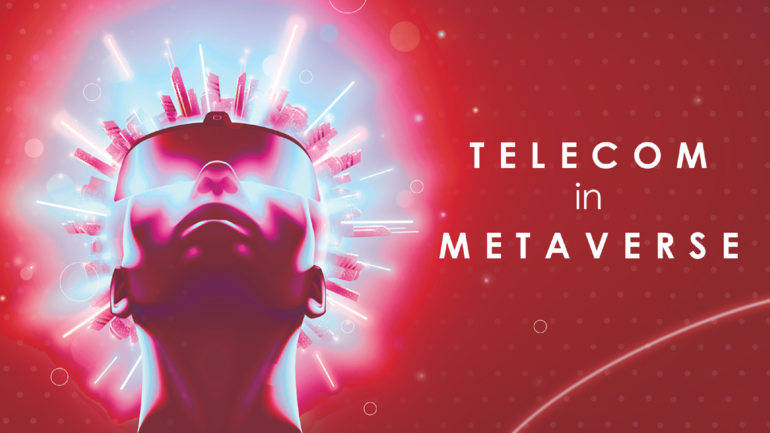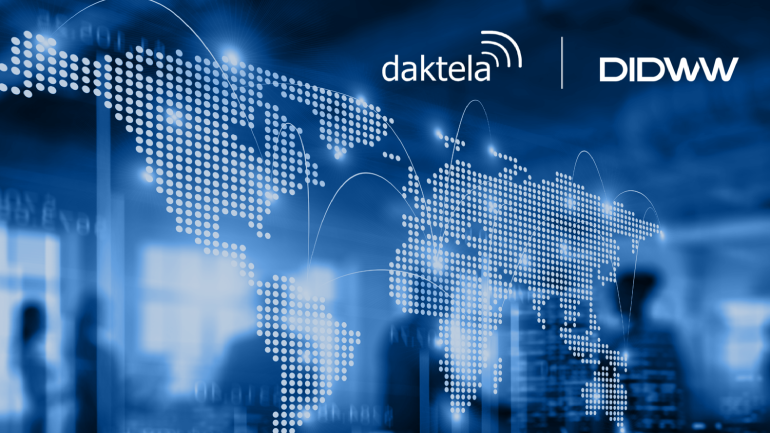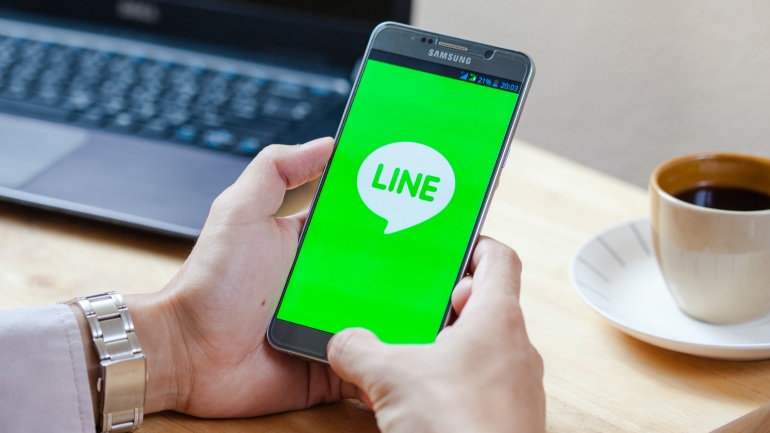DIDWW, a global provider of premium quality cloud communication services, has announced the expansion of its two-way SIP trunking solution by adding Georgia, Turkey and Slovenia to its local call termination coverage. Serving as an efficient replacement for traditional telephony, this solution offers virtually unlimited call capacity, flexible SIP trunk settings, truly local dialing and premium voice quality. The DIDWW SIP trunking service is delivered over a private, global IP network, which ensures the highest level of security and reliability. In addition, DIDWW has built its SIP trunking solution to address the needs of telco operators and businesses of all sizes and help to effortlessly expand their voice communications all around the world. With the recent additions of Georgia, Turkey and Slovenia to their local dialing coverage, the DIDWW local termination service is now available in 41 countries. Tadas Urbietis, Carrier Relations Manager at DIDWW, added, “We…
What if one day there was no Internet? The Web as we know it would be gone for good. Sites like Facebook, Twitter and Google would only exist in the memories of people who lived through the Great Disconnection. The Internet is the greatest invention and technological revolution since the printing press. Since its creation, we’ve built our whole lives around this innovation, depending on it for almost everything. But what would happen if the Internet was no more? What would life be like without the Internet? The thought experiment There are no attempts to dismantle the Internet that we are aware of, therefore you have nothing to be concerned about. But isn’t it fascinating to consider what might happen if the Internet would suddenly shut down? If the Internet suddenly went down at this very moment, we wouldn’t make a huge issue out of it, as it happens sometimes,…
T-Mobile gives an AI wildfire detection system access to 5G T-Mobile US, the disaster-focused tech startup Pano AI, and Portland General Electric have collaborated to install a network of 5G-connected cameras near Portland, Oregon. The cameras are linked to an AI detection system that watches for the earliest indications of wildfires so that the emergency services can respond to these possible emergencies more quickly than they would otherwise. Given the horrific wildfires that have ravaged the United States in recent years, systems such as these have the potential to be extremely valuable. Read more at: https://tinyurl.com/yr7xr3ac European telecoms testing holographic calls Together with Matsuko, Telefónica, Orange, Deutsche Telekom and Vodafone are creating a platform that will connect the physical and digital worlds via a mobile connection. The experimental platform takes advantage of 5G connectivity, which has a fast speed, high bandwidth and low latency. The system produces a 2D video…
The metaverse, a product of today’s Internet, is being welcomed as the next phase of communications, promising superior online experiences in a shared virtual world. Some have dubbed it as the “Internet on steroids,” since instead of merely reading text and viewing videos, individuals would be able to participate in virtual realms thanks to technology like 3D and artificial intelligence. The metaverse, one of the trendiest tech buzzwords at the moment, promises a future in which the virtual and real worlds are intricately linked. So, what role will telecommunications companies play in this possible future? What is the metaverse? The Metaverse – a combination of “meta” (beyond) and “verse” (universe) – sounds like something out of a science fiction novel. And that is actually the case. The term “Metaverse” first appeared in Neal Stephenson’s 1992 cyberpunk novel Snow Crash. However, the science fiction metaverse and the Metaverse envisioned by Facebook (now…
Google introduces Distributed Cloud In order to address the needs of its enterprise customers, Google has announced their Distributed Cloud, which will allow users to balance their workload on the public cloud and private infrastructure. It is “a portfolio of solutions consisting of hardware and software that extend our infrastructure to the edge and into your data centers,” commented Sachin Gupta the GM and VP of Product for IaaS at Google. Built on Anthos, the Google Distributed Cloud is the perfect platform for local data processing, edge computing and on-premises modernization. Read more at: https://tinyurl.com/mc2ye95c Facebook rolls out Live Audio Rooms for creators worldwide Live Audio Rooms, Facebook’s new feature designed to help public figures and groups to connect with their communities, has been released to a global audience. First launched only in the US back in June and limited to only iOS users, the solution…
To keep up with rising customer expectations, contact center service providers strive to offer a broader range of services and expand their area of coverage. The Czech technology company Daktela, that specializes in providing complete solutions for contact centers and customer communications, has announced a strategic partnership with DIDWW, a global telecoms operator that offers premium quality VoIP communication and SIP trunking services for businesses and telecom carriers all over the world. As part of this cooperation, Daktela will benefit from DIDWW’s extensive virtual phone number coverage, allowing its contact center business to grow and operate efficiently across multiple countries and territories. While maintaining one of the largest VoIP cloud infrastructures in Europe, Daktela continues to expand its market presence globally. For this purpose, the company will use the DIDWW API and online portal for immediate service provisioning. In addition, Daktela will also utilize DIDWW’s fully compliant global…
GCI to expand capacity for rural areas GCI, an Alaskan service provider, has signed a $150 million contract with Intelsat to increase the telecommunications service capacity in rural areas. GCI has been providing geosynchronous (GEO) satellite communications for 35 years to supply the state with data, video and voice services. The latest transaction gives GCI continued access to C-band and Ku-band capacities, which are already a part of GCI’s satellite services portfolio, and also provides new access to state-wide Ka-band capacity. Furthermore, Intelsat will provide the multi-satellite solution through a new and improved managed station platform and C- Ku- and Ka-bands networks. Read more at: https://tinyurl.com/w52yht6u South Sudan launches Digitel Network South Sudan has announced the launch of Digitel Network, the country’s first telecommunications company, which was introduced to celebrate 10 years of independence of the country. South Sudan has so far had the services of only two international mobile…
New security features for Google Workspace and Google Drive Google has unveiled new security tools that include client-side encryption for Workspace and several enhanced data protection features in the platform’s Drive service. The tech giant said there will be new trust rules and labels for Drive to classify files and apply controls based on their sensitivity levels. These added security features are the result of several factors, including Google’s “security first” philosophy, the rapid increase in remote work environments due to the pandemic, and the company’s experience with its BeyondCorp zero trust security model. In addition, Google is also increasing phishing and malware protection in Workspace. Read more at: https://tinyurl.com/ygc7yhw7 Facebook partners with Internet service providers D-VoiS and Netplus Facebook has announced new partnerships in India with Internet service providers (ISPs) D-VoiS and Netplus. These ISPs will use Facebook Connectivity’s Express Wi-Fi platform to provide public Wi-Fi hotspots in various…
The SoftBank Group’s subsidiary Z Holdings has announced that after completing a merger with the popular messaging app Line, it will invest $4.7 billion into the venture and hire 5,000 artificial intelligence engineers over the next five years. The merger of the two Japanese companies has been in the works since 2019, but was delayed by issues related to Covid-19. The main business areas of the company will be communication and social media, electronic and mobile commerce, along with online search and advertising. With the launch of their new services and collaborations with companies such as for online advertising, the joint establishment aims to generate $18.7 billion in revenue and $2 billion in operating profit in the fiscal year 2023. Softbank Corp. and Naver Corp., the South Korean IT giant and major shareholder of Line, will each contribute 50 percent of capital required for the new intermediate holding…
The European Commission (EC) has appointed Nokia, a Finnish international telecommunications, information technology and consumer electronics company, to supervise Hexa-X, a primary 6G research project aimed at boosting the continent’s progress in developing the technology. The two-and-a-half-year Hexa-X initiative was funded by Horizon 2020, the EU’s research, and innovation program, and will start on January 1, 2021. The project is aimed at connecting the physical, digital and human worlds, firmly embedded in future wireless technologies. The project is led by Nokia, which coordinates the efforts, with Ericsson being assigned as the technical manager. The partners in the consortium are from academia and industry, including service providers, network providers and European research institutes. The partners include Orange, TIM, Telefonica, Intel and Siemens. The Finnish service provider said in a statement that it expects 6G to become commercially operational by 2030, following a normal ten-year intergenerational cycle and taking…













